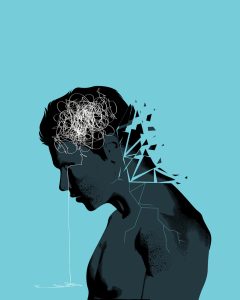In the previous blog, we discussed listening skills and observing skills of the client. Good listening and observation set the stage for proper responses. In this blog, we will shortly review core concepts in turning listening into positive and productive counselor responses that help the client through the counseling process. Attending skills are essential in any type of counseling, especially grief counseling. When these basic skills are absent, the client can feel neglected or misunderstood. Good grief counselors, whether licensed clinical counselors or non-clinical counselors, are able to incorporate these skills to enhance the therapeutic nature of counseling and keep the client as an active and on going participant in his/her mental health. Bear in mind, good responses are not necessarily saying the most profound or theory correct statement, but the particular response that is best for the particular stage of counseling and needed comment. Sometimes the responses may be short or longer, statements or questions, informative or probing, but they all have a particular reason and are the tools of the trade in discovering issues and helping clients find better outcomes.
Identifying Emotions in Counseling

In the last blog, we spoke about the vital importance of observation and how a grief counselor needs to identify verbal but as well as non-verbal cues in a client that can illustrate a particular issue or feeling. In formulating therapeutic responses, grief counselors and other counselors need to identify the particular emotion of an attending client. This involves identifying the words associated with the emotion, implicit and unspoken emotions, and any non-verbal cues of the emotion expressed (Ivey, 2018, p., 170). Based from the core universal feelings across cultures, a counselor should watch for sad, mad, glad and scared (Ivey, 2018. p., 171). These are root words for all emotions and a grief counselor can build from these words to more complex emotions.
It is crucial to employ empathetic responses. Like the previous blog, which emphasized empathetic listening, again, the word empathy appears in counseling. The grave importance of empathy allows the counselor to become involved in the client’s state of being in a true and understanding way that helps the counselor produce productive and positive change. Empathetic responses help the client feel understood and not judged, or admonished. Hence, responses to emotions need to be empathetic and caring in nature. Egan reports three important types of empathy in responding from the work of Arthur Clark. He first lists subjective empathy, which puts the counselor literally in the client’s life and helps the counselor understand the emotional state of the client. Second, he lists the term objective empathy which ties to the studies of the counselor and the counselor’s own personal experience in counseling. Tying these together is a third type of empathy referred to as interpersonal empathy, which ties together the client’s feelings and the way the counselor is able to communicate it as well as any needed information (Egan, 2019, p. 132-133).
Interpersonal empathy involves the ability to perceive the issues, the know how to state it and the assertiveness when to input it (Egan, 2019, p. 134-137). Grief Counselors need to perceive the emotion on display, the ability to articulate it and the assertiveness to sometimes address it when uncomfortable. It is important to report what is said back with empathetic accuracy (Egan, 2019., p. 137). Ivey also emphasizes the importance of accuracy in naming particular emotions. He points out that counselors should use the words to describe the emotion by the client and also attempt to articulate the emotion with name and when only seen non-verbally as close as possible to what the client is experiencing (2018, p. 171). Egan continues that is important when naming emotions to remain sensitive when naming them, as well as to not over-emphasize or under emphasize them. He also encourages counselors to be aware of cultural sensitivities as well when naming particular emotions (2019, p. 139-142).
Prompts in Counseling
Some clients may speak openly about issues of loss, trauma or everyday issues. They are a flood of information. Other clients may be more shy, untrusting, or quiet in how they detail their issues. Obviously, building trust is key within the therapeutic relationship and plays a large role in receiving vital information during the listening phases. However, sometimes it takes various prompts, nudges, or encouragements to help a client discuss difficult issues. The art of counseling involves keeping a steady dialogue and flow between client and counselor and this falls upon the counselor’s shoulders to ensure this productive process. According to Egan, probes are extremely beneficial in helping clients engage more fully, especially with more reluctant clients, in identifying experiences, feelings and behaviors. They further help clients open to other areas of discussion and engage in conversation with more clarity and specifics. They can also help clients remain on target and on important issues (2019, p. 177).

Some encouragers can be as simple as “uh huh” or a simple phrase of understanding which serves as a bridge for the client to continue speaking (Ivey, 2018, p. 148). Sometimes, as simple, as saying “I see” or “okay” or “please continue” are strong enough phrases to encourage the client to continue the story. Sometimes the counselor can merely restate the emotion in a particular tone expressed by a client which further facilitates further discussion. These simple prods can break silence and encourage the client to continue with the story. Others can be simple non verbal movements, as a nod of the head, a particular look or leaning forward (Egan, 2019, p.161). Prompts, probes or nudges can also take the form in longer responses. Counselors can make statements, requests, or ask particular types of questions to better understand the story and also to properly push it forward.
Questions in particular have high value in counseling. They help the counselor not only understand and clarify points, but they also show the client a sincere interest on the part of the counselor and sometimes can push the client to delve deeper into an issue and find more self discovery. Questioning, however, for the pure purpose of questioning can be counter-productive and make the client feel they are being interrogated, so questions need to be utilized sparingly and effectively (Egan, 2019, p. 163). Ivey points out that there are types of questions that are open and closed (2018, p. 124). Both have their purpose and time but need to be utilized properly in order for the question to be effective. Open ended questions, as a rule, should be utilized most. These types of questions do not end with a simple response of “yes” or “no” by the client but look to abstract more information and input from the client. According to Ivey, most open questions begin with the words “how”, “what”, “where”, “when” or “could” (2018, p. 124). Close ended questions look for a particular concise answer and have value but usually are used when the counselor is looking for a particular answer while the counselor is primarily talking during the session. Another great question is the “what else question”. This question looks for any additive elements to the story or if the counselor is missing anything (Ivey, 2018, p. 125). Remember, if the counselor does not understand something, then questions or statement looking for greater clarity are better than pretending to understand.
Another important prompt involves paraphrasing. Paraphrasing is a useful tool utilized in responses by counselors to help keep the conversation going or to help the client hear reflectively what the client has stated. Sometimes the mere power of hearing something back has immense value. When a counselor paraphrases, the counselor usually states the emotion in a sentence and then concludes with a “because” phrase. For instance, a counselor may paraphrase to a depressed client by stating, “you are depressed because you no longer feel any energy”. This paraphrase can illicit additional information or continue the conversation, much in the same fashion as a simple nod, or phrase. Ivey points out that paraphrasing is not repetition but also adding some of the counselor’s own words (2018,p. 148). It is important to note that when paraphrasing, if something is worded incorrectly, the counselor should apologize and ask for deeper clarification. Sometimes, hearing certain things back can trigger an individual, or if worded differently, and the client is not ready to hear the interpretation, the client may respond quickly, or begin to close up. Cultural issues can sometimes play a key in this.
Finally, Summaries are a critical promoting tool in responding to a client. Summaries are more detailed paraphrases that adds more depth to the conversation. They are usually utilized to begin an interview to help bridge the previous meeting, or to conclude a meeting, but they have other purposes as well during the session (Ivey, 2018, p. 148). Egan points out that sometimes a more detailed summary can help during a session when the discussion is not going anywhere. They can also be utilized to help the client see a new perspective (2019, p. 178-179). A counselor utilizing a summary for purposes of illustrating a new perspective can state “I’d like to get the bigger picture… or “I’d like to put a few things together” (Egan, 2019, p. 179). According to Egan, it is also important to help clients create summaries. The counselor can ask the client to put together the major points or concerns of the issue and to articulate them Egan, 2019, p. 180).
Carl Rogers saw the importance of these ways to respond. In this Basic Listening Sequence BLS, he saw the skills of the counselor in how he/she responds to be most crucial. The utilization of open/closed questions, encouraging, reflecting feelings, paraphrasing and summarizing were all critical elements in the empathetic relationship and understanding the story (Ivey, 2019,p.194).
Pitfalls to Avoid When Responding
Responses while helpful can also be detrimental when not properly utilized by the counselor during a session. A counselor needs to avoid certain responses that derail the process or make the client uncomfortable. Not responding or asking too many questions are two extremes to avoid. Not responding can remove merit from a statement or display disinterest to the conversation. While sometimes silence can be powerful, not saying anything or responding is usually non productive to the counseling session (Egan, 2019.p. 155). It is also a dis-service merely to respond for the sole purpose of it. Counselors should avoid parroting or repeating without context Parroting dismisses any empathetic response (Egan, 2019, P. 156)

In addition to not responding, some counselors misuse questioning. They can either over utilize it and make the session appear as an interrogation, or ask distracting questions that inflame rather than heal. For instance, instead of responding with empathy, some counselors can ask inflaming and distracting questions that upset the client. Instead of focusing on the client’s feelings, the question looks at how the client may have responded. “Did you confront him” or ” Did you do anything at all” or “Are you positive you cannot resolve this” (Egan, 2019., p. 155). These questions again distract from the story and the emotion and can cause irritation in the client as he/she focuses on a personal injustice or slight.
Cliches are another responses that should be avoided. In grief counseling, cliches are counter-productive. In general counseling, they are also counter-productive. Cliches can minimize the conversation and cheapen it. They attempt to replace understanding and empathy with a more generic and impersonal response (Egan, 2019, p. 155). Clients can hear cliches from the next door neighbor, they do not need to hear them from trained professionals that are their to help assist them in resolving issues.
Another pitfall is how counselors advise clients. In the counselor-client model, most people expect advise from a counselor. Other cultures may demand it. However, in counseling, the counselor does not exist to advice a course of action, but presents a host of options for the client to choose. The client is in control and the counseling relationship is one of teamwork and collaboration. When the client is told what to do, then the counseling relationship strips the client of self discovery and self healing. The client is not looking for a family member to give un-wanted advice, but a set of options. Instead of saying what to do, instead utilize “if I was in your situation, here are a few options that I might look into” (Egan, 2019, 156).
Interpretations based on theories and models are also tempting responses that have a time and place but usually not in responses. A counselor may have a wealth of knowledge to share, but when interpretations and labeling of an client’s state of mind overtake empathetic responses, then the process of counseling can become derailed. Instead of giving a moralistic interpretation based on past study, respond to the client’s feelings (Egan, 2019. p. 155).
Counselors need to be also honest in their responses to a client. Pretending to respond with ingenuine “Uh huh” or “Ok” can lead to later issues when the counselor is expected to remember or understand something previously stated by the client. Hence if, one loses sight, or track of a story, it is far better not to pretend to understand but to ask for clarification. This is not only polite and professional but it also shows genuine interest and also pushes the client to better explain the issue which alone may be beneficial (Egan, 2019, p. 157).
Finally, a counselor’s response should not be sympathetic and agreeing for the sake of being so. Empathy is far different than sympathy. Many times sympathy can drown logic and allow one to lose focus on the facts. An empathetic counselor while caring remains grounded. The counselor response is not overtly sympathetic or judgmental but one that addresses emotion and the issue in a caring way. The client is looking for help beyond a shoulder to cry on (Egan, 2019, p. 157).
Conclusion
A grief counselor’s response to a client is key in helping the client tell the story. The response is tied to good observation of the client’s emotions. Good responses are helpful in transitioning the story, moving it forward, but also in in proper feedback about the story. Empathy is the guiding force in responding. Grief Counselors can utilize nudges or prompts with verbal and non-verbal responses. Some verbal responses can be one word or a phrase, while some may include paraphrasing or summaries. Good counselors utilize responses like an artist and interweave them throughout the counseling process.

Please also review AIHCP’s numerous mental health certifications that involve counseling skills. AIHCP offers a Grief Counseling Certification, as well as a Christian Counseling Certification. Other topics include crisis counseling, stress management and anger management. All of the programs are online and independent study and open to qualified professionals seeking a four year certification.
References
Egan, G & Reese. R. (2019). “The Skilled Helper: A Problem-Management and Opportunity-Development Approach to Helping” (11th Ed). Cengage
Ivey, A. et, al. (2019). “Intentional Interviewing and Counseling: Facilitating Client Development6 in a Multicultural Society” (9th Ed.) Cengage
Additional Resources
Bennett, T. “Empathic responding (or active listening) in counseling: A basic, yet essential response for counselors to master in their practice”. Thriveworks. Access here
“ENCOURAGERS, PARAPHRASING AND SUMMARISING”. Counseling Connection. Access here




















